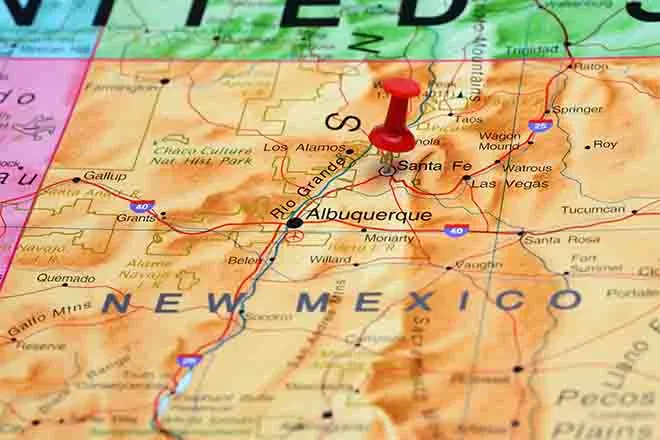
Daily Audio Newscast - March 19, 2024
News from around the nation.
South Dakota public defense duties shift from counties to state; SCOTUS appears skeptical of restricting government communications with social media companies; Trump lawyers say he can't make bond; new scholarships aim to connect class of 2024 to high-demand jobs.
TRANSCRIPT
(upbeat music) The Public News Service DOI Newscast, March the 19th, 2024.
I'm Mike Clifford.
First to South Dakota, where they're creating an office of indigent legal services.
US constitutional rights give all people accused of a crime the right to a lawyer.
South Dakota is one of only two states where counties, not the state, have been responsible for providing public defenders for those who can't afford to pay.
Neil Fulton, who co-chairs a statewide task force on this topic, says that cost adds up for counties.
He says there are added challenges for people in rural counties seeking attorneys.
The biggest challenge is just availability and the geographic reach from where the lawyer is to where the client is.
Fulton predicts the bill will improve the quality of public defense.
He hopes to see the new state office taking on cases by year's end, following the creation of a commission on indigent legal services and hiring and training attorneys.
I'm Mike Bowen.
The changes to the system are projected to cost the state $1.4 million annually and save counties over $1.5 million.
Meantime, a majority of Supreme Court justices appeared highly skeptical Monday about claims that the Biden administration crossed the line from persuasion to coercion when it told social media platforms to remove problematic content.
That from NBC News.
An issue, an injunction imposed by a federal judge currently on hold that would limit contacts between government officials and social media companies.
And for the New York Times, Donald Trump's lawyers disclosed Monday he had failed to secure a roughly half billion dollar bond in a civil fraud case in New York, raising the prospect that the state could seek to freeze some of his bank accounts and seize some of his marquee properties.
The Times notes the court filing comes one week before the bond is due, suggesting that the former president may soon face a financial crisis.
And this year's high school grads will be eligible for over 14,000 new scholarships offered through Opportunity Next Colorado, a $21 million investment approved by state lawmakers.
Dr. Angie Piccioni with the Colorado Department of Higher Education says the goal is to set graduates up for success and fill high demand jobs that fuel the state's economy.
She says 75 percent of all jobs in Colorado and 94 percent of top jobs that pay enough to sustain a family require some form of education beyond high school.
Right now, just under 50 percent of our high school graduates are pursuing post-secondary education.
We want to see that number bump up so that our students have the credentials that they need to get the job they want.
Members of the class of 2024 can get a $1,500 scholarship, which Piccioni notes should cover the entire tuition costs for certificate programs that can be completed in as little as six months.
I'm Eric Galatas.
This is Public News Service.
An ethics committee in the Republican-led Iowa House has dismissed a complaint filed by a group of community activists against a state lawmaker for his support of the state's education savings accounts.
ESAs allow parents to use public money for their kids' private education.
Representative Dean Fisher, a Republican from Montour, has plans to open a private school in his district and voted in favor of legislation that created the ESA program.
Iowa Citizens for Community Improvement's Tim Glazey believes Fisher's vote was clearly a conflict of interest.
They want to have about 120 students in the school, and if you do the math, that's over $900,000 of public money that'll be going to his personal school every year.
While he did not address his plans for a private school in his response, Fisher argued the ethics complaint was politically motivated and said he was fulfilling a campaign promise by voting to create the ESAs.
I'm Mark Moran.
A bipartisan law set to take effect this summer prohibits foreign adversaries from buying Hoosier farmland.
R. Joe Ulore tells us the signature of Governor Eric Holcomb was the final step for House Bill 1183.
Landmark legislation bans China, Cuba, Iran, North Korea, Russia, and Venezuela from owning or leasing farmland within the state.
It also opposes restrictions on real estate transactions within a 10-mile radius of military installations.
GOP State Senator Blake Doria of Goshen is a staunch supporter of the bill.
He echoes the concerns of many lawmakers about potential vulnerabilities posed by extensive foreign ownership of farmland. 40 million acres is twice the size of the state of Indiana, is in foreign ownership.
So maybe we need to be looking a little more before we sell the whole country.
Opponents argue the bill goes too far and punishes people who fled the targeted countries.
Finally, from Danielle Smith, the Knoxville-based environmental group is voicing concerns over what it sees as an increasing financial strain imposed on taxpayers by nuclear weapons projects.
Expense for the Y-12 uranium processing facility in Oak Ridge are expected to increase as it ages.
Tom V. Cartelet with the Oak Ridge Environmental Peace Alliance says the National Nuclear Security Administration requested an extra $810 million for the Y-12 complex.
That pushes its total cost to $9 billion, which is 2.5 billion more than the initial estimate.
We don't have public transportation here.
That can be something great for us, but instead we're paying towards nuclear weapons.
This is Mike Clifford for Public News Service, member and listener supported.
Here's how radio stations big and small, your favorite podcast platform.
Find our trust indicators at publicnewsservice.org.















